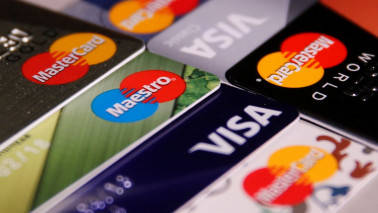Millennials! Here are three ways to build your credit score
Timely repayment of any loan creates a clean repayment history for the individual.

Nikhil Walavalkar
Moneycontrol News
Buying your dream home is a task, especially if you have just started working. High property prices make home buying an uphill task and the home loan becomes inevitable. Each basis point saved on interest rate of home loan leads to a huge saving. While the interest rates in the economy are not in your control, you can influence the home loan deal by keeping your credit profile attractive. To put it straight, if you have a credit score in excess of 800, banks may want to offer you the best deal possible to get you on board. Here is how to build your credit score.
Pay off your education loan
Vivek Rege, Founder and CEO of VR Wealth Advisors says, “Timely repayment of any loan creates a clean repayment history for the individual. This helps in building your credit score.”
For the uninitiated, credit score is a number, between 300 and 900, that captures the essence of the credit report. Credit report enlists the loan repayment history of a borrower and highlights how timely the repayments have been. Banks offer home loans to individuals with a credit score in excess of 750. Many young individuals opt for an educational loan to complete higher education before taking up a job. “If you have already taken an education loan, ensure that you pay it off as per the repayment schedule. This will enable you to build your credit score over a period of time,” says Vivek Rege. Failing to pay your education loan can pull down your credit score.
Service your personal loans and credit card loans
If you have a personal loan or a credit card loan, then ensure that you service it diligently. “These are high cost loans, hence it makes sense to pay them off on time,” says Jignesh Shah, founder of Mumbai based Capital Advisor – a wealth advisory firm. “As you pay them off, you gradually enhance your credit score.” Such outstanding loans also pull down your borrowing capacity and hence it makes sense to pay them off on time, if not earlier.
Opt for a credit card
If you have not taken any loan in the past, your credit score will be zero. There is nothing bad about it. But some lenders shy away from such borrowers while some others ask for more information while appraising the loan application.
If you are keen to build credit score, you may consider opting for a credit card. Please note that the credit card is a loan that attracts very high rate of interest if you are not able to pay the entire amount outstanding before the due date. If you pay your bill on time then it becomes a means to pay others and build your credit score.
If you are not offered a credit card by any bank due to reasons such as low salary or inadequate employment history, opt for a secured credit card. In this arrangement, you invest in a fixed deposit of the card issuing bank and the bank offers you a credit card against the fixed deposit. If you fail to repay your credit card dues, the bank forecloses the bank fixed deposit to recover the dues. Thus the bank need not worry about extending unsecured credit and you get to use a credit card.
Once you acquire a credit card, ensure that you pay the bill in full before the due date. Opt for a standing instruction to pay off the dues from your bank account and keep sufficient balance in your saving bank account. Also never use more than 30% of credit limit offered by your credit card. This helps you build credit score over a period of time.














